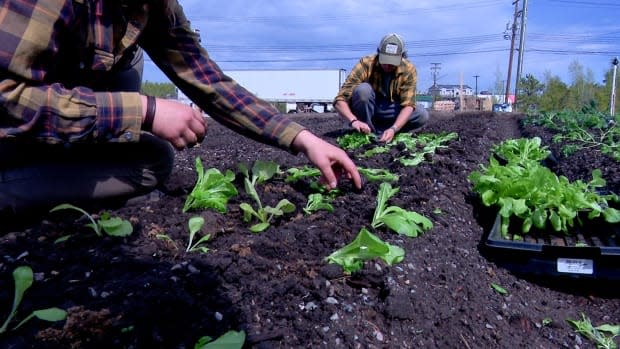Investment in food security needed as COVID-19 emergency funding ends, advocates say

Advocates are calling for more investment in food security programs from the City of Vancouver as they anticipate the end of pandemic-related emergency funding for food programs.
They say a lack of funding could leave many people without the means or funds to access nutritious food.
Ian Marcuse, coordinator with the Vancouver Neighbourhood Food Networks (VNFN), described the pandemic as a "wake-up call" in terms of inequities among Vancouverites, as many became unemployed and couldn't afford groceries or were unable to leave their homes to shop for food.
"Twenty per cent, one in five people, in our communities are considered low income, below the poverty line," Marcuse told CBC On the Coast guest host Margaret Gallagher.
"Many of them depend on institutions like food banks and the like."
VNFN's focus is on health and well-being, along with promoting self-reliance and autonomy around access to food, Marcuse said.
But over the course of the pandemic, the group handed out nearly 180,000 prepared meals and 105,000 food hampers, providing support for more than 20,000 people in the city.
"Our mandate isn't to support emergency food provision, but we have those existing relations. We were able to mobilize community members quickly," Marcuse said.
Marcuse said the non-profit is woefully underfunded, and believes the city could step in to help.
A VNFN report released last week says $1.76 million — around 0.1 per cent of the city's budget — would be enough to hire 22 full-time staff to coordinate food security programs in communities across the city.
"That's one full-time position in every community centre in the city, which would put Vancouver on the map as a world leader in addressing food security," Marcuse said.
Its current annual operating budget comes from the sustainable food systems grant from the City of Vancouver, which is worth $200,000. The city said the VNFN has been receiving city funding since 2009.
"I think the Vancouver Neighbourhood Food Networks are well positioned to support this work through what we call a place-based community development approach, working with people on the ground, building relations and so on," Marcuse said.
In a statement to CBC, the city said it has its own food strategy, of which VNFN is one part.
"As part of the food strategy, the city recognizes neighbourhood food networks (NFNs) as powerful community-based engines that catalyze action, knowledge and skill-building on a range of food system issues and we are grateful for the important work they do," the statement said.
The city also says it understands the funding challenges all non-profits, including VNFN face, and that they have been exacerbated by the COVID-19 pandemic.
To hear Ian Marcuse's interview on CBC's On the Coast, click here:

 Yahoo Movies
Yahoo Movies 